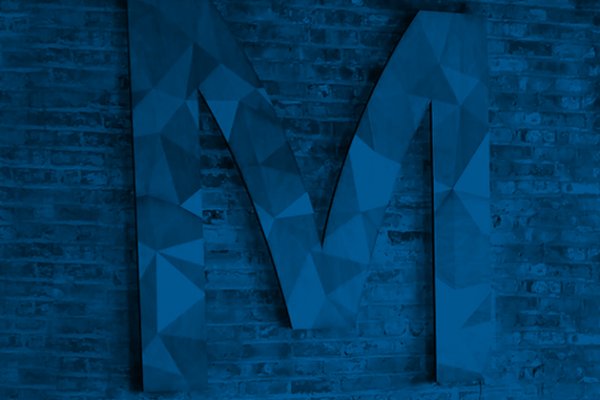On March 30, we are celebrating National Doctor’s Day where we honor all physicians for their dedication and contributions to the health of their patients. With the healthcare industry becoming more complex than ever with so many advancements, tools, and information, doctors continue to manage the overwhelming responsibility to be able to accurately diagnosis and treat their patients and continue to pave the way to better healthcare options. We’re spotlighting three of Magellan Health’s doctors who each explain why they chose to become physicians, and what are some of the most rewarding and challenging aspects of working in this field:
- Doris Lebischak, M.D., medical director with the California plan, has been with Magellan since September 2020.
- Lyle Forehand, M.D., medical director, has been with Magellan since July 2022.
- Anjali Yeolekar-Dasari, M.D., medical director BH Presbyterian/ Magellan Health (NM), has been with Magellan since June 2021.
Continue reading to learn more from Drs. Lebischak, Forehand, and Yoelekar-Dasari on their experience as physicians:
Why did you become a physician and what is the most rewarding aspect of working in this field?
Dr. Lebischak: There is nothing more important than our health. When you have your health, you have everything. Anything that I do that contributes to collective or individual health makes me happy.
Dr. Forehand: This is what I was born to do. I really think I’m blessed to be doing this, especially after so many attempts when I was younger to do something else. Being a physician is great because I get to listen and improve at that skill as I’ve always talked more than listened. Especially as a psychiatrist, I must be good at hearing what people are saying and what they aren’t saying. The best part for me is when I have helped someone, not because of something I know as a doctor, but because of who I am as a person. Meaning, all the things I’ve done, or thought, or said all added up to who I am in that moment which helped change someone’s life for the better. I think those of us working in the behavioral health fields get that experience more than most – and it’s awesome!
Dr. Yoelekar-Dasari: I was brought up by a family of doctors in India. I would spend my summers helping my grandfather, a general practitioner, who practiced medicine in rural India. It was watching him interact with his patients and in turn the patient’s gratitude towards his work that made a deep impact on me. I started focusing on science and found the discipline intellectually challenging. I wouldn’t be who I am today if it were not to be for my mother’s constant encouragement to achieve my goal of being a physician and a psychiatrist. The field of medicine and psychiatry has allowed me to meet new people and has given me the opportunity to help make people feel better.
What are some challenges you face being a physician and how do you overcome them?
Dr. Lebischak: Becoming a physician was an impossibility when I first considered it. I started as a candy striper and believed that women could only become nurses or teachers. Following others that have braved the path before me (especially my sister) has helped me overcome the challenges. Today the challenge is implementing what we know. We have never had better healthcare, yet our life expectancy is decreasing. Lifestyle medicine can prevent 80% of all chronic medical conditions, including mental health conditions. Our collaborative care model gives us a way to support our members to make those connections and make good decisions to support their health.
Dr. Forehand: Everyone has an opinion about health. The Internet has now bred two generations of people who think they know about medicine as much as their doctors. People aren’t simple, and our problems aren’t easy.
Dr. Yoelekar-Dasari: I have spent my entire career practicing psychiatry in northern New Mexico which is very rural. There are shortages of doctors, psychiatrists, primary care doctors, and specialty physicians. This sometimes puts psychiatrists in positions of being everything to everyone and frequently having to cope with being the sole resource for the community. It is the gratitude from my patients that has kept me going.
Is there anything you’d like to highlight about working in this field?
Dr. Lebischak: You have no health without mental health.
Dr. Forehand: It’s great to be in any helping profession. I see everyone in similar helping professions from first responders, teachers, to other health professionals as my colleagues. I’m proud to have them as colleagues.
Dr. Yoelekar-Dasari: Since joining Magellan, I have focused on improving services to the population diagnosed with Autism Spectrum Disorder (ASD). In the underserved and rural areas of New Mexico, members with diagnosis of ASD face challenges accessing services leading to poor outcomes. I have worked with my team on providing education on the importance of early intervention and working on improving services to this population.
What does National Doctor’s Day mean to you?
Dr. Lebischak: What a privilege it is to be a psychiatrist. It’s a time to reflect on all those who support us and the goal of mental health.
Dr. Forehand: I understand the first Doctors’ Day was established by the wife of a physician. I can relate to this as this is what means the most to me: that my wife, who has spent decades seeing what I gave up helping my patients and having to sacrifice with me, would honor the choice I made when I became a physician.
Dr. Yoelekar-Dasari: It is a day celebrated to recognize contributions of physicians to communities. In the past I have marked the day by making donations to underserved communities.





